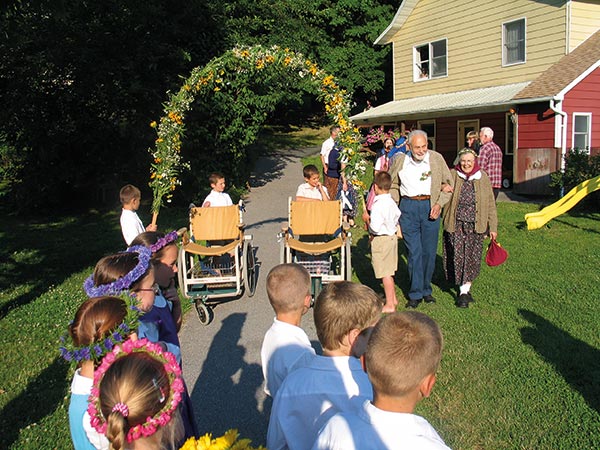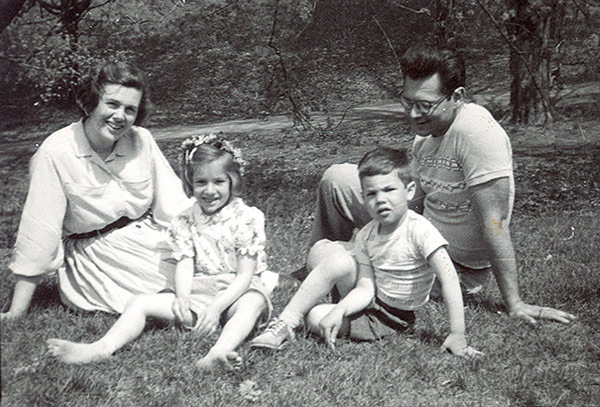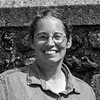Subtotal: $
Checkout-

The Chocolate Ice Cream
-

Poem: “The Revenant”
-

Poem: “L’esthétique de la Ville”
-

Poem: “When You Pursue Me, World”
-

Gazapillo
-

Editors’ Picks: God Loves the Autistic Mind
-

Editors’ Picks: Damnation Spring
-

Editors’ Picks: Life between the Tides
-

The Faces of Our Sons
-

Remembering Tom Cornell
-

Letters from Readers
-

Monica of Thagaste, Mother of Augustine
-

Covering the Cover: Generations
-

A Legacy of Survival
-

Daughter of Forgottonia
-

Giving Your Children Your Words
-

Book Tour: On Being a Good Ancestor
-

Ten Theses on Intergenerational Stewardship
-

Inheriting Mental Illness
-

Yearning for Roots
-

Fear of a Human Planet
-

Reviving the Village
-

Is There a Right to Have Children?
-

The Stranger in My House
-

The Sins of the Fathers
-

My Father Left Me Paperclip
-

Decoding the Bible’s Begats
-

The Name of My Forty-Sixth-Great-Grandfather
-

Somewhere in Chessington
-

Singing the Law
-

Desiring Silence
-

Uncle Albert

Soldier of Peace
I spoke with the Bruderhof’s oldest member, a World War II veteran, about how to pass on a spiritual legacy.
By Maureen Swinger
January 3, 2023
Available languages: español
Next Article:
Explore Other Articles:
Paul Pappas knew exactly what he wanted to say to me, and it wasn’t going to be about growing old on the Bruderhof (the original topic of the interview), although he’d just turned ninety-eight – the oldest living person in our community movement. He has also been my adopted grandfather for the last twenty-six years, so I was delighted to drive over to our neighboring Bellvale Bruderhof and spend an afternoon catching up. But that didn’t mean my questions were getting answered. Not the practical ones, at any rate. To my open-ended “What can you tell me about getting old in community?” he jumped right to the last word:
“Community is the fruit of Pentecost, when the people all of a sudden experienced something so positive that it just brought them together. And we have been brought together in all kinds of ways. Personally, I was very against it to start with, and I have said sometimes that I was too stubborn for God to lead, so he had to close in behind!” He continued, “I feel like when the king wanted to have a big banquet, and he kept trying to get more and more people, and finally he said, go and force them to come in. I was the one who was forced!”

Paul and Mary Pappas, right, on their sixtieth wedding anniversary. All photographs courtesy of the Pappas family.
Paul’s forceful invitation to community began with his witness to the enormity of war. He had been in the Marine Corps, deployed to the Pacific during World War II. “I landed in Nagasaki six weeks after the bomb was dropped. And I said, ‘Why did we have to drop a second bomb? Wasn’t it clear?’” That gratuitous destruction crushed his faith in almost everything. “When I came out of the military, I was very angry and bitter and cynical. I had no purpose in life. There just didn’t seem to be any meaning to it.” The one thing he was sure of was that “war was never right. Never. It would never produce what you want, and that is peace.”
After the war, his life looked not half bad on the outside, with a young family and career opportunities in electrical engineering. “I was getting to the place where I had a salary and we could have bought a new car, and even think maybe about a house, but I thought, ‘What do you do then? You have a new car and you have a house, but so what?’ What I didn’t realize was that I was missing a purpose, something that I could really do – something to do about. As far as I was concerned, religion had no meaning if there was nothing you can do about it right here.”
Meanwhile, his wife, Mary, was also searching for meaning and purpose; a talk at a peace conference convinced her that they ought to visit the Bruderhof then in Paraguay. “She said, ‘There’s something I should do with my life, but I don’t know what it is. When I see it, I’ll know it.’ And did she know it! She was ready to pack her bags and go. With a baby and a two-year-old.
“The world was going to hell, and there wasn’t anything I could do about it. But now I know what to do about it.” Paul Pappas
“She got a vision of God’s coming kingdom. It wasn’t just community. I’m so thankful for this life. It obviously saved me and it saved my marriage. It was nothing I did.” Paul emphasized that he did not share that vision immediately, but credited “God and my wife” for bringing him around. “We have to get the essence of our common life – why we’re doing this, and the importance of it. Because it’s for the whole world, not just us. We have been given a task to represent something of God’s kingdom here, so that people can see it, can experience it – and that’s what had to happen to me. When my wife and I finally went to Woodcrest, I saw something of this. Here was a people who had a purpose, and they were going at it with everything. It dawned on me, well, I don’t have that purpose, and I want it. That’s what made the big change in me, and it led me, from there on. Because before, I didn’t believe people could live like this. No way.”
I looked down at my scribbled questions. He was blasting past “Do you feel fulfilled; do you have a purpose for living?” Paul took pride in showing up on time in the furniture workshop every day, but that’s not what got him up every morning. He made sure to bring the conversation back to that: passing on a legacy, one that was entrusted to his generation, and one that he prayed my generation and the ones following after would fully comprehend. He sympathized with young people’s sense that “the world was going to hell, and there wasn’t anything you could do about it. But now I know what to do about it.” He quoted Eberhard Arnold: “‘We have to make God’s invisible church visible.’ That’s our task.”
Specifically, he’d been occupied recently with some young men whom he cared for very much. He’d been worried that they’d embraced a sort of simplistic patriotism without wanting to hear that there are dark sides to every power, or that the flag can be an idol. “What I always say is that whatever our country does that’s good, it’s good – and they do many things that are good. We are very blessed that we are able to live all these years here without being persecuted. We have been accepted, and we have the freedom that we wouldn’t have in many other countries. And we have to be very thankful for this. But there are so many things that our country does that aren’t right. Even Isaiah says that a time will come when what is said to be good will be bad, and what is bad is good.”
“There are things happening now that in my early years, I would never even have dreamed of,” he continued. “We live in a very, very serious time; I don’t remember a time in my lifetime when we [as a country] were so divided, and not only divided, but to the point of there being hatred, in so many different things.” He worried about signs of war. “Personally, I feel we’re in the end times. Just because we live in such a beautiful place – it’s peaceful, and we can take care of ourselves, and we can go to work, and everything works out. But that could change overnight.”

The Pappases with their two oldest children, 1956.
Paul believed in responding in faith rather than joining the fight. “Sometimes there’s a certain urge to get out and protest. I’m not interested in protesting. It doesn’t give you a positive answer. But we have an answer here. We don’t have an army, we don’t have a police force, we don’t have a justice of the peace; we have to give up something in order to have that. And it’s me. It’s not a question of material things, it’s me.” That kind of self-dedication means becoming part of something greater: “The apostle Paul compares the church to a body, and if you’re baptized, you become part of that body. You’re no longer an independent person. You’re still yourself, but you act as part of a body. And we find the way together; this is the secret of our life.”
I wish the youths who don’t agree with him or perhaps avoid his challenges could have heard how invested he was in their future: “One of the guys that I was concerned about – all of a sudden, I don’t know what happened, he got up and made a very clear statement; he wanted baptism. I had prayed that somehow God would work in his life. I almost got up and shouted, ‘Hallelujah!’”
Once upon a time, I was the callow youth Paul and Mary took in: when I was a rather scruffy eighteen-year-old, my first year away from my family, they simply loved me into their household, no matter what I did or said. They listened to my big questions, and were too generous to serve up easy answers. They just had a way of being there, making space for a soul to grow. When I left for college, I knew they were still there for me. When I spent a year working in a migrant center on the edge of the Everglades, I often thought, “What would Paul think about this? What would Mary expect of me?” Their care had power.
Once upon a time, I was the callow youth Paul and Mary took in: a rather scruffy eighteen-year-old experiencing my first year away from my family.
When I made my own decision to join the Bruderhof a year or so later, they wrote a letter of celebration and also of vulnerability, telling of the time of their membership vows, and some of the joys and struggles faced in the intervening years. When again, a few years later, we ended up living on the same community, I had a standing invitation to hang out once a week and talk through life. When Mary was dying, I could come and say goodbye and thank her for her love, and she thanked me for being part of the family. I had brought a bouquet of roses from my small garden out back; she exclaimed over each of them separately, rejoicing in practically every petal. That was always Mary’s way, and not just with flowers.
When my future husband asked me to marry him, one of the first places I went afterward was Mary’s grave. It was a joyous visit; I brought her roses and prayed for a marriage as steadfast as theirs. When Jason and I told Paul about our engagement, he gave us his and Mary’s blessing; doubly powerful considering one member was weighing in from heaven. He wrote several thoughtful letters to us as we were just starting out that we still treasure. When after several years of marriage we hit tough times, he was solidly in our corner in prayer and quiet counsel, and when we came through, he was first to rejoice with us, with that look on his face that said, “We’ve been there too.”
If Paul were to read this, he would point out that they are not special in any way. They are not the only elderly folk on the Bruderhof who have enough vision to share it around – if we listen while they’re here to talk.
Paul’s parting words of the afternoon: “We can’t be thankful enough for what God has blessed us with. But we are going to be tested, and we need to have our feet on the Rock to face the future. We have to be willing to stand up for what we know is true, regardless of the consequences. If that isn’t clear to us, we’re not going to make it. How do you pass all that on? I don’t know how!”
“Don’t give up on us,” was all I could think of to say, and he replied, smiling, “Oh no, I have no intention of giving up.”
It was our last conversation. Three weeks later, Paul joined Mary in heaven.
Already a subscriber? Sign in
Try 3 months of unlimited access. Start your FREE TRIAL today. Cancel anytime.











































Phil Goutell
I was greatly moved by the words of Paul Pappas referring to his wife: "She got a vision of God's coming kingdom." How lucky she was and how lucky we would be to have such a vision which, of course, is just waiting for us to experience.
Sahara Lefevre
Thank you Maureen for this beautiful writing. I congratulate Plough and the team for giving us such fulfilling stories always.